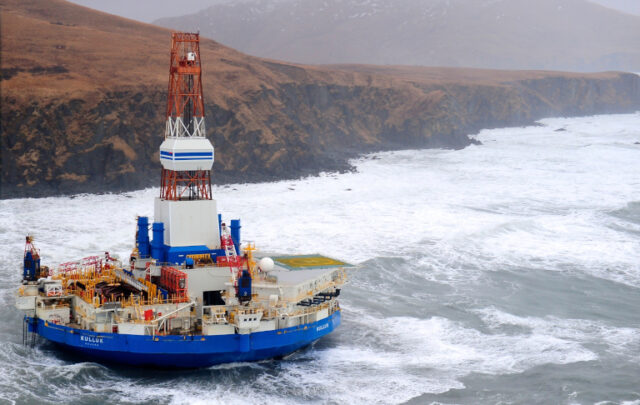Click on the headline (link) for the full text.
Many more articles are available through the Energy Bulletin homepage
When oil crisis hits, Canada fantasyland will become nightmare
Frances Russell, Winnipeg Free Press
IN 1980, furious Albertans slapped bumper stickers on their cars stating “Let the eastern bastards freeze in the dark” to protest Ottawa’s “Canada First” National Energy Program. Every federal government since has ceded national energy policy to the provinces and, by proxy, to the North American marketplace.
This appalling abdication of leadership leaves Canada completely exposed to the supply crisis experts predict is inevitable once the world enters the dark and uncertain time of Peak Oil.
Here are some of the reasons why:
Canada exports 67 per cent of its oil to the U.S. yet 40 per cent of Canadians are totally reliant on offshore, mostly Middle Eastern, oil. The three leading Middle Eastern countries upon whom 36 per cent of Ontarians and 90 per cent of Quebecers and Atlantic Canadians depend are Algeria, Iraq and Saudi Arabia.
Before the North American Free Trade Agreement, 30 per cent of Canada’s oil was exported to the U.S. NAFTA has more than doubled Canada’s oil exports south.
The five proposed new pipelines from Alberta’s tar sands to the U.S. will commit 75 to 80 per cent of Canada’s oil to the American market. Yet it is the taxpayers of Alberta and Canada who will pay the staggering environmental costs and subsidize the extraction bills.
…Canada is the only oil-producing country — and the only western industrialized country — not to have a Strategic Petroleum Reserve (SPR). The International Energy Agency (IEA) requires net import nations to maintain emergency 90-day oil reserves. Net export nations are not obliged to keep SPRs because the IEA sensibly assumes no country exports without ensuring domestic needs first. The IEA has no mechanism for a nation that doesn’t control its own resources.
Peak Oil is coming fast. The U.S. Department of Energy predicts it no later than 2010. The drop-off will be steep and rapid, throwing the world into crisis upon any war, terror attack or natural disaster. “Government intervention will be required, otherwise economic and social implications would be too chaotic,” says the USDE.
(6 February 2008)
Not sure where Frances Russell got the idea that the U.S. DOE is predicting peak oil before 2010. If it has, the DOE has not made it public (to my knowledge). -BA
Take the muzzles off scientists
Editorial, Times Colonist (Vancouver Island)
That the federal government would consider muzzling scientists underscores how little Stephen Harper and the Conservatives understand about science. For science to thrive, it requires freedom. Scientists should be free to share their knowledge without having to worry about whether or not the science fits a preconceived political agenda.
The federal government’s insistence that scientists now consult with communications staff before conducting interviews, or even confirming basic science facts, is an insult to them and their professions. It requires the experts to defer to the spin doctors.
Scientists typically tend to be careful and conservative in what they say. But sometimes what they discover is unpleasant or inconvenient. That’s all the more reason to be upfront rather than to massage a difficult message in order to suit a government’s objectives.
Establishing a labyrinthine bureaucratic structure to ensure “approved lines” means answers to pressing questions will be delayed and even lost in the maze. Such a policy is the kind one might expect from the Bush administration in the U.S., where, in 2006, a political appointee attempted to censor warnings from climate scientists about global warming.
Closer to home, last fall the B.C. government told scientists not to identity habitat critical to endangered species. After environmental groups learned of this directive, the government argued that such a decision shouldn’t be based on science alone, but must also consider socioeconomic impacts.
Fair enough. However that should be done by weighing all the evidence and not asking that parts of it be fudged to fit a political agenda.
Science needs to be faithful to the facts and free of political meddling. If that makes political decisions more difficult, too bad.
(5 February 2008)
Related at the Times-Colonist: Conservatives’ paranoid gag orders will backfire.
Oil Sands Are Shifting in Alberta
Guy Chazan, Wall Street Journal
CALGARY, Alberta — After years of headlong growth, Canada’s oil sands have hit a speed bump.
Escalating costs, labor shortages, tax increases and the threat of tighter climate-change laws are clouding the prospects of one of the world’s biggest sources of oil. And while multinationals can cope with the tougher operating environment, smaller companies are struggling.
“About a dozen of the smaller oil-sands players are coming to me saying we can’t make this work,” says Brian Maynard, vice president of the Canadian Association of Petroleum Producers, an industry group. “Their economic model is no longer viable.”
A mixture of sand, water, clay and bitumen, Canada’s oil sands lie under an area of boreal forest larger than Florida. Alberta estimates that the province has 174 billion barrels of recoverable bitumen, making Canada’s oil reserves second only to those of Saudi Arabia.
But the oil is extremely costly to extract. Most future production will require high-pressure steam to be injected into the ground to separate the gooey bitumen from the sand it clings to, and vast amounts of natural gas must be burned to produce the steam. Multi-billion-dollar upgraders are needed to convert the bitumen into synthetic crude oil.
The turning-point came around four years ago, when crude began its rally and oil sands became economic. Thousands flocked to Alberta to seek their fortune. Fort McMurray, the hub of the oil rush, was dubbed “Fort McMoney.”
(5 February 2008)
Behind a paywall at the moment.
Freezing in the dark: Canada needs Strategic Petroleum Reserves (SPR)
Gordon Laxer, Straight Goods
Canada needs Strategic Petroleum Reserves – short-term stores of oil that can be released during supply shortages to meet regional needs.
Canada is a producer and net exporter of oil. Yet this national status masks an important regional divide; Eastern Canada is a net importer of oil, receiving up to 90 percent of its oil from overseas, much of it from OPEC countries like Algeria, Iraq and Saudi Arabia. Eastern Canadians are vulnerable to global oil supply shocks.
The International Energy Agency (IEA), of which Canada is a founding member, requires member countries that are net importers to maintain emergency oil reserves of 90 days of net imports. It does not require this of net exporters, as exporters are sensibly assumed to ensure domestic oil needs before exporting their surpluses.
There is not enough east-west oil pipeline capacity to transport western oil to Eastern Canadians in times of supply shock.
Unfortunately, unlike in most industrial countries, Canadian governments in recent years have not prioritized domestic energy security. Canada exports 67 percent of the oil it produces to the United States, and NAFTA’s “proportionality” clause prohibits Canada’s government from reducing this proportion, even in times of crisis. And there is not enough east-west oil pipeline capacity to transport western oil to Eastern Canadians in times of supply shock.
Gordon Laxer is a University of Alberta professor of political economy as well as being Executive Director of the Parkland Institute. Laxer is a socially-engaged public intellectual who has been involved in issues of Canadian economic sovereignty, social and economic transformation, developing a better accommodation with Quebec, opposing the New Right and building bottom-up democracy. He was the first chairperson of the “Waffle” movement in Toronto in 1969, and in 1985, was the first head of the Council of Canadians in Edmonton.
(5 February 2008)





